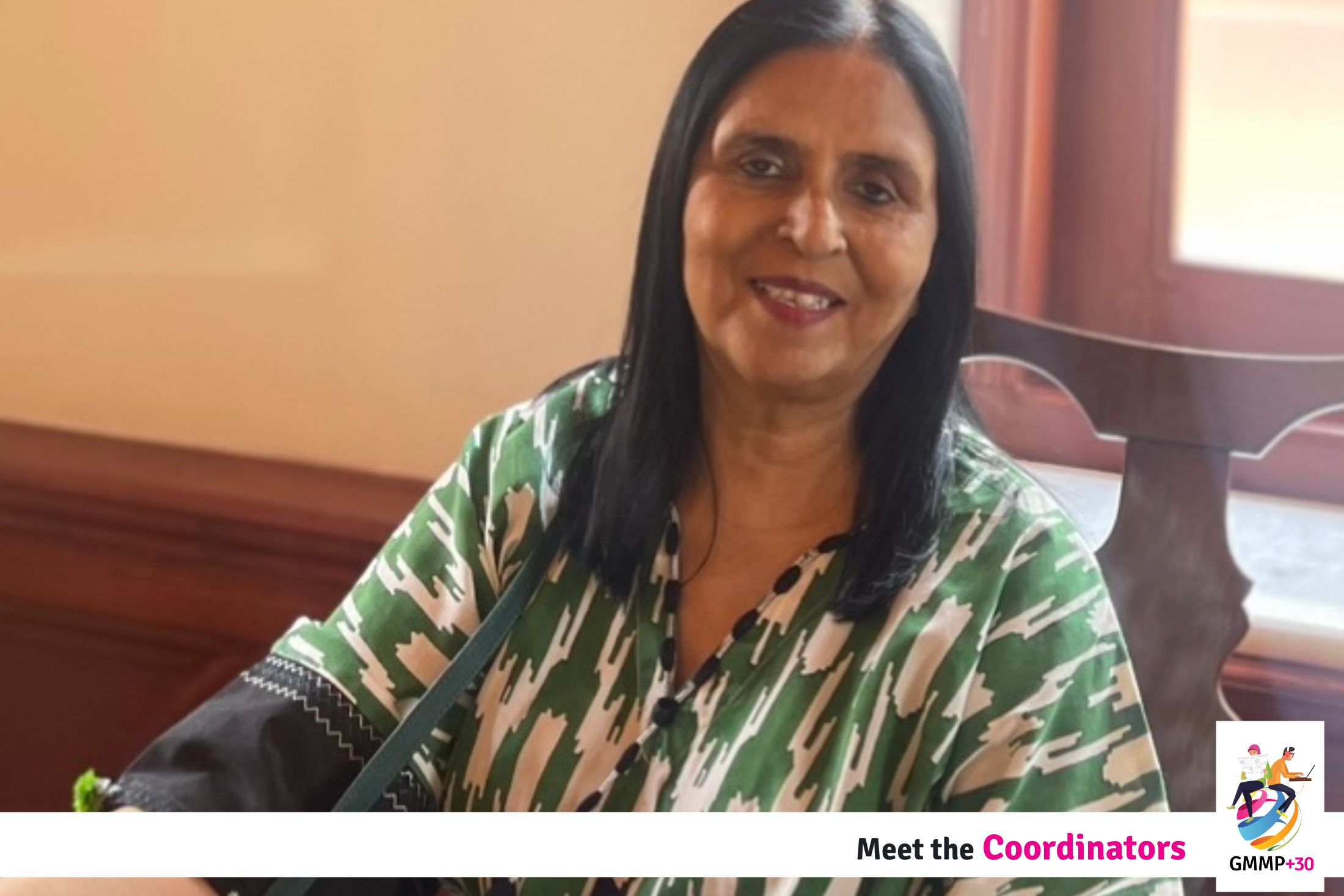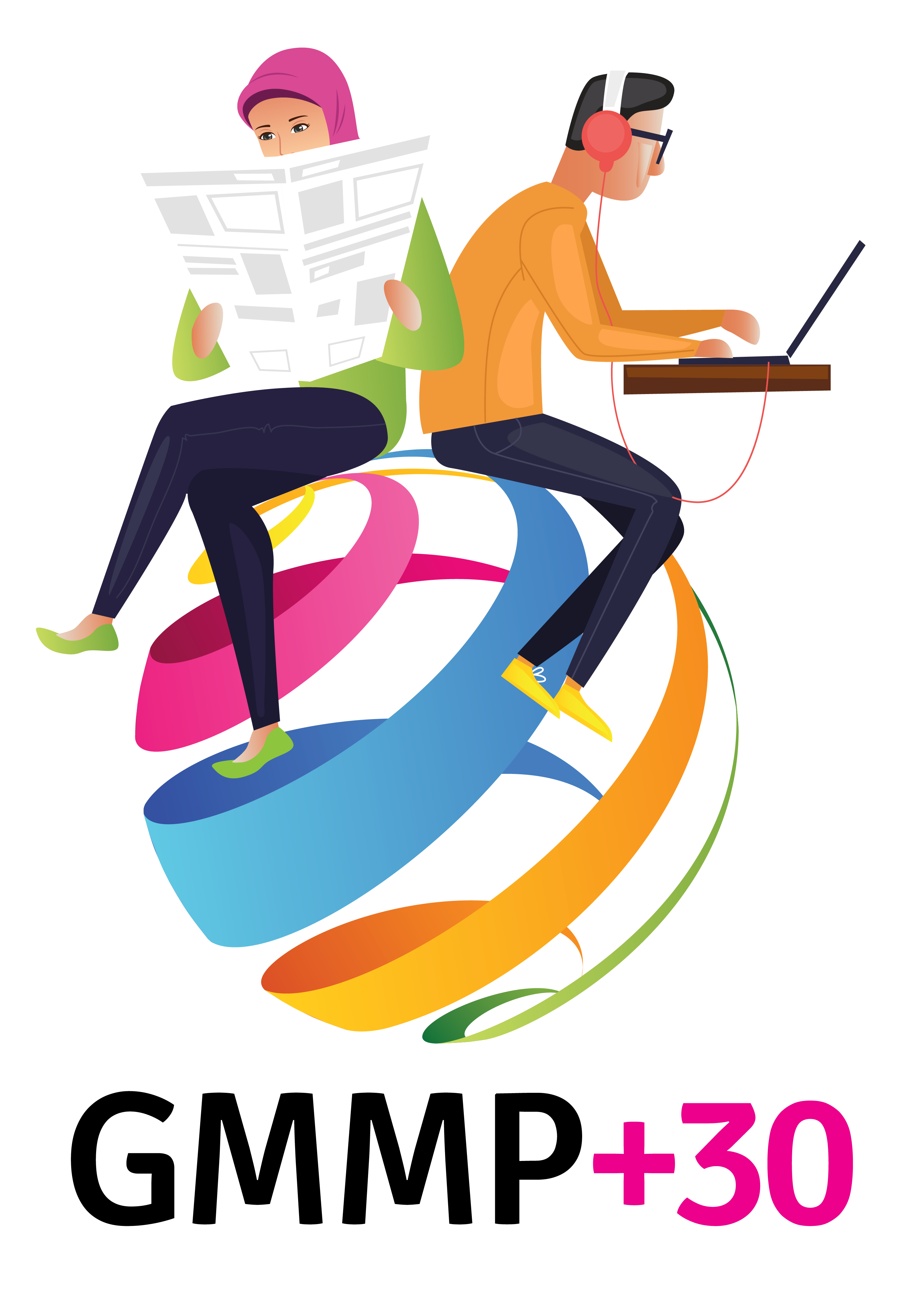
24 Abr Meet GMMP Pakistan Coordinator Tasneem Ahmar
Name: Tasneem Ahmar
GMMP Coordinator for: Pakistan
Since: 2010
Why are you a GMMP coordinator? What motivated you to lead the GMMP?
This has been a journey of passion, commitment, and persuasion.
I had first read about GMMP in its newsletter back in early 2000. I was very keen for Pakistan and its media to be a part of this very intensive, much-needed study for two reasons: Pakistan had opened up its airways, and a huge number of private TV and FM radio channels were coming up; and second, the media in Pakistan was and continues to be one of the most vibrant and diverse ones and to a large extent freer than many in regional and global countries.
My organization, Uks Research Centre, was able to come onboard for the 2010 GMMP and remains as Pakistan country coordinator to date.
How are you using the GMMP methodology, tools and findings? How have any of these dimensions of the GMMP shaped the work of your organization, institution or network?
Uks has benefited from and utilized GMMP methodology to enhance and hone our own gender-based analysis of everyday media monitoring, from print, electronic to social media and from news, current affairs to entertainment media. Most of Uks’ reports have some elements of GMMP methodology. It is our guidebook to media analysis.
What positive change has the GMMP driven in your context? What contribution has it made to the process towards gender equality in or through the media?
Each GMMP has added to our own understanding of how and what’s to be monitored in the media, how women are portrayed, represented and treated in the mainstream media:
- How the social media needs to be looked at through a very carefully designed methodology and what are the trends in different countries and how to learn from them.
- Above all, how to reach out to the media, academia and the public with the five-yearly reports, both national and global, for information and knowledge-sharing on how to change the media’s working conditions, from basic facilities to how women journalists are denied important beats, to sexual harassment and their vertical progress.
- Also, how to change media narratives around gender issues, especially when it comes to trans people.
As we mark the GMMP’s 30th anniversary now in 2025, why do you believe that it is crucial for the GMMP to continue?
For Uks, and I am sure, for all partner countries, the GMMP is a benchmark of how the media across globe fared in five years. What were the ups and down? What was neutral, balanced or blind from gender lens?
The GMMP gives us an insight into regional and global scenario with important statistics, which help organizations like ours that are focused on media monitoring and analysis on women and marginalized communities. There is no other way to get this kind of intensive and extensive information based on solid research methodology.
Tasneem Ahmar is a journalist and the founder and executive director of Uks Research Centre in Pakistan.

Get involved with a GMMP+30 team near you. Contact us to find out how.

Sorry, the comment form is closed at this time.